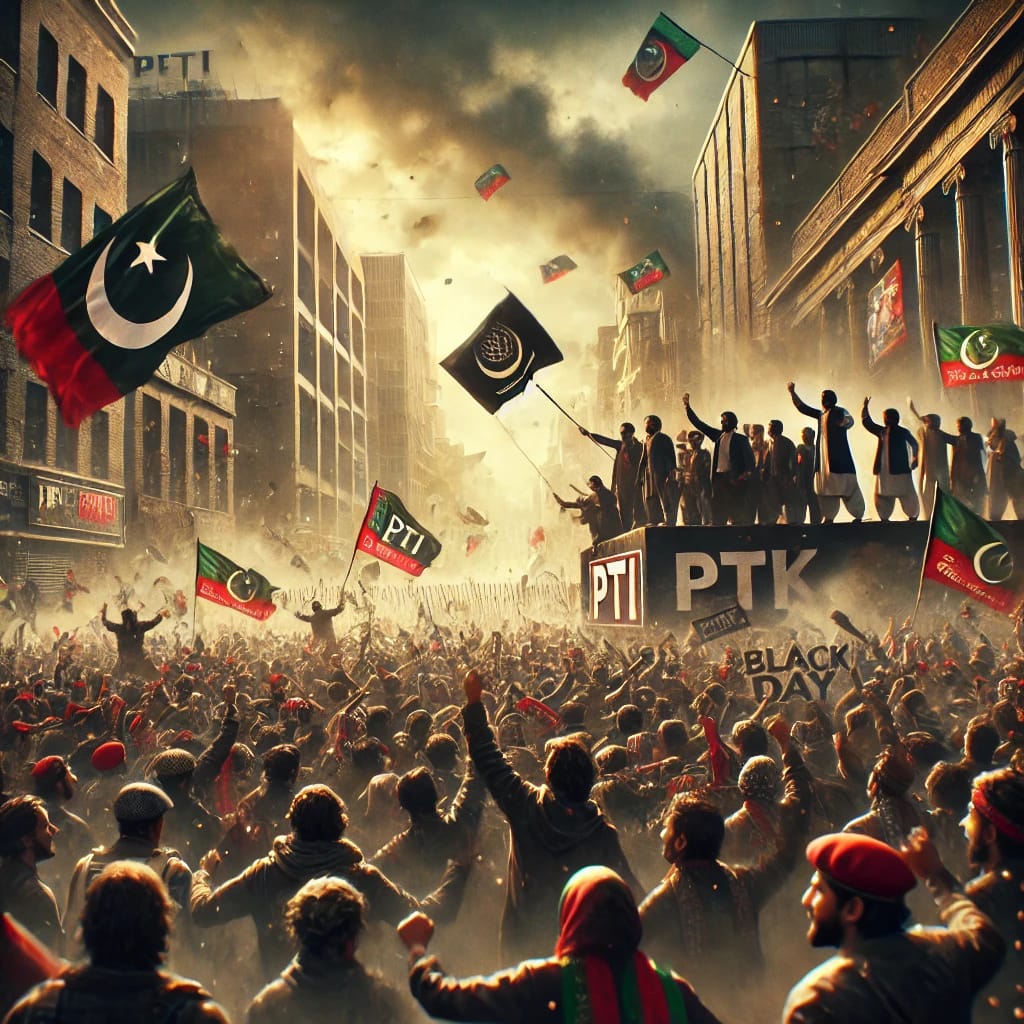Pakistan Tehreek-e-Insaf (PTI) has declared February 8th as a “Black Day,” marking its protest against alleged electoral injustices, political victimization, and suppression of democratic rights. With PTI supporters gearing up for demonstrations across the country, the key question remains—will this protest be successful, or will it face the same fate as previous opposition movements?
Reasons Behind the Black Day Declaration
PTI has called for this protest citing multiple grievances, including:
Alleged Election Rigging – PTI claims that the upcoming elections are already manipulated in favor of the ruling coalition.
Crackdown on PTI Leaders and Workers – The party has faced mass arrests and suppression of political activities.
Censorship and Media Blackout – PTI alleges that it is being systematically silenced in mainstream and social media.
Judicial and Institutional Bias – Claims that institutions are being used to weaken PTI’s political standing.
Factors That Could Determine the Protest’s Success.
- Public Mobilization
PTI has historically been successful in mobilizing its supporters through social media and street protests. However, with increased restrictions on PTI leadership, the ability to gather large crowds remains uncertain. - Government Response
The government’s handling of the protest will be a crucial factor. A heavy-handed response could amplify PTI’s narrative of oppression, whereas allowing peaceful protests may defuse tensions. - Media Coverage
PTI has repeatedly accused mainstream media of bias and censorship. If media outlets downplay the protest, it may not gain nationwide traction. - International Attention
PTI has been attempting to gain international support by highlighting human rights violations. If global organizations take notice, it could put pressure on the government. - Internal Party Strength
With many PTI leaders either jailed or in hiding, the effectiveness of its organizational structure will play a significant role. Grassroots mobilization and effective leadership coordination will be critical.
Possible Outcomes
If the protest gathers large crowds: It could energize PTI’s supporters and create a new wave of political momentum.
If the protest faces a crackdown: It could deepen political tensions and provide PTI with more evidence of state repression.
If the protest fizzles out: It would be a major setback for PTI, weakening its stance before the elections.
Conclusion
The success of PTI’s Black Day protest on February 8th will depend on multiple factors, including public participation, government response, and media attention. While PTI’s popularity remains strong, its ability to translate online support into on-ground action will be a decisive factor. Regardless of the outcome, this protest is likely to shape Pakistan’s political landscape in the coming months.







PTI’s “Black Day” on February 8th is a big test for the party. If they can gather large crowds, it will boost their movement. But if the protest is weak or faces a crackdown, it could hurt their momentum.
The government’s response will be key—if they react harshly, it might prove PTI’s claims of oppression. Media coverage is also important, but since mainstream media is likely to ignore it, social media will play a major role.
Overall, this protest could shape PTI’s future. If it gains enough support, it might create real political pressure. But if it fizzles out, it will be a major setback before the elections. Let’s see how things unfold!